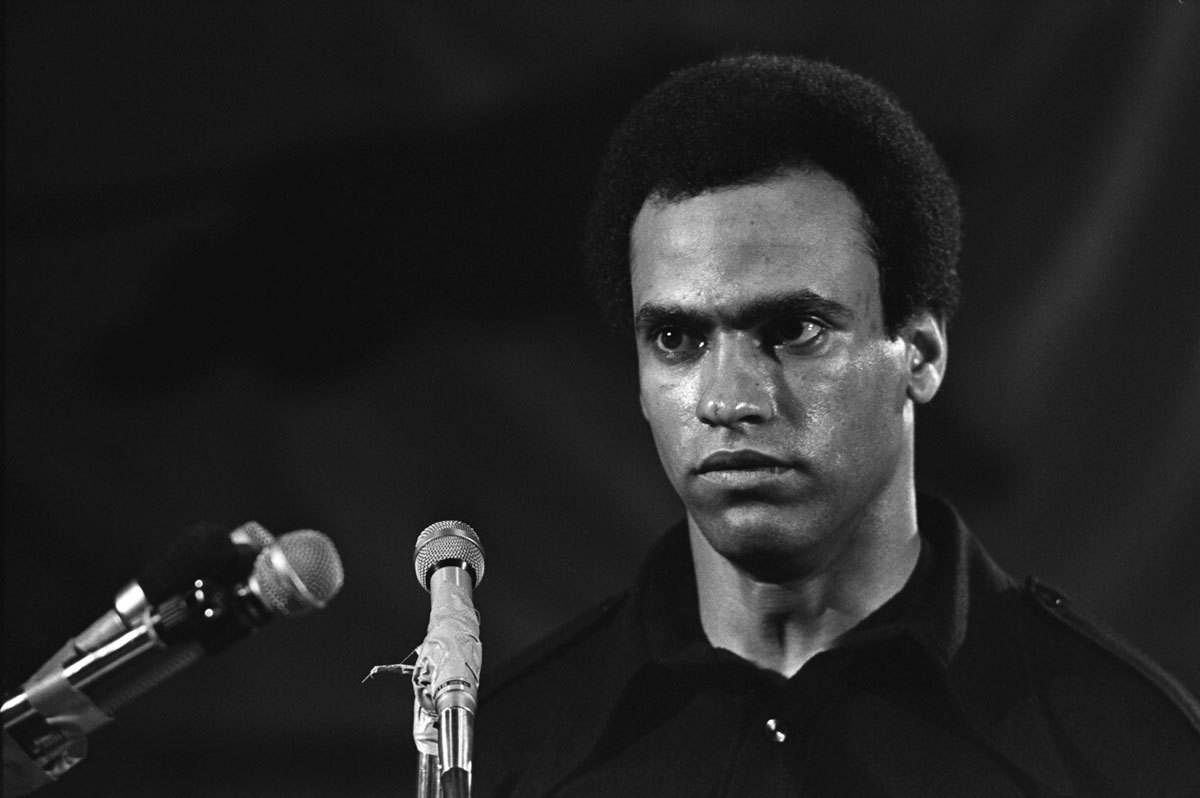
Meanwhile, a confused and angry officer tried to block the photographer�s shot.Įldridge Cleaver further framed the incident as an example of the Panther�s refusal to be intimidated in his words, Huey Newton had �dealt with transgression of the territorial integrity of the Black community in a necessary way.� His actions and attitude were to be emulated, not condemned. Reports trickled out that police had handled the arrest of a badly injured Newton with excessive force a widely distributed photograph displayed him shackled to a hospital gurney so that his stomach wound was tensed and contracted, obviously worsening his pain. Yet for the Panthers, the incident was a validation of sorts, a proof that their complaints of police brutality were warranted. For the national media, the Panthers� potential for violence merited no further debate�the question had been resolved with the worst possible outcome, the death of a police officer. What mattered most were the ways in which the import of the shooting and Huey�s arrest for the death of Officer Frey were manipulated by the press and the Panthers. The actual events of that evening�s confrontation were never established definitively beyond the physical evidence for all effective purposes they were negligible. Robinson was convicted of murder in 1991 and was sentenced to 32 years to life in prison.On October 28th, 1967, the prophecy of violence was realized in a battle of gunplay between Huey Newton and the Oakland Police Department that left Officer John Frey dead, Officer Herbert Heanes shot several times, and Newton wounded in the stomach. Newton is buried at Evergreen Cemetery in Oakland. My soul will live forever!” Robinson then shot Newton twice in the face. Newton’s last words were, “You can kill my body, and you can take my life but you can never kill my soul. The murder occurred after Newton left a drug den in a neighborhood where Newton had once organized social programs. Relations between the Black Panther Party and the Black Guerilla Family had been strained for nearly twenty years prior to this incident. In 1989, Newton was fatally shot in West Oakland by a member of the Black Guerilla Family and drug dealer named Tyrone Robinson. This rift resulted in violence between the factions and the deaths of several BPP members. Newton wanted the party to focus on serving African American communities while Cleaver thought the focus should be on building relationships with international revolutionary movements. Compounding these challenges was the split that developed between Newton and Eldridge Cleaver in early 1971 over the primary function of the Party.

Upon his return, he stood trials for one more assault and murder and was acquitted of both charges. These charges resulted in him fleeing to Havana, Cuba to escape prosecution for three years. imperialism.Īfter returning to the United States, Newton was tried for a variety of violent offenses such as assault and multiple murders. He was welcomed enthusiastically by large crowds holding up copies of Quotations from Chairman Mao Tse-tung as well as signs supporting the BPP and criticizing U.S. This was most demonstrated when Newton was invited to visit China in 1970. The Black Panther Party, under the leadership of Newton, gained international support. The Party believed that in the Black struggle for justice, violence (or the potential of violence) may be necessary.

Many of the Party’s principles were inspired by Malcolm X and his views. They decided that Seale would be the Chairman and Newton would be the Minister of Defense. Soon after, in October 1966, he and Bobby Seale founded the Black Panther Party for Self Defense (BPP). During his tenure at Merritt College, Newton joined the Afro-American Association and helped get the first African American History course adopted into the college’s curriculum. from the University of California at Santa Cruz.

He attended a variety of schools including Merritt College before eventually earning a Bachelor’s degree and a Ph.D. His parents moved to Oakland, California during Newton’s childhood. He graduated from high school without having acquired literacy, but he later taught himself to read. Huey Percy Newton was born in Monroe, Louisiana.


 0 kommentar(er)
0 kommentar(er)
